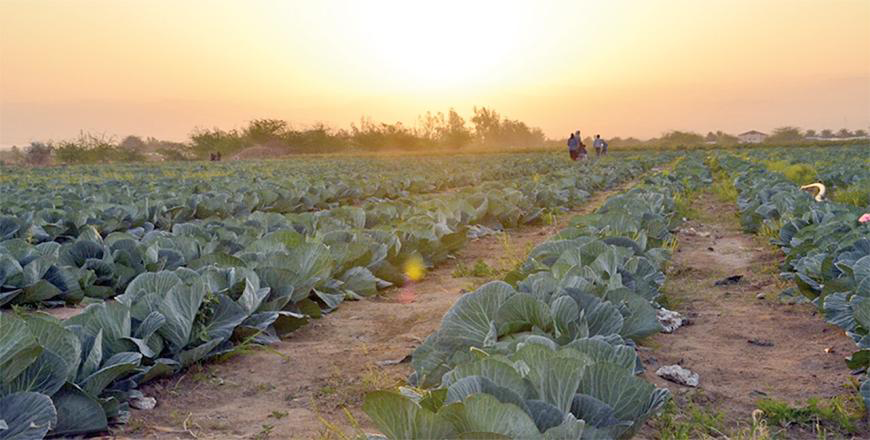AMMAN — Farmers are calling for the activation of the Land Use Regulation Law to help mitigate the impact of climate change on their livelihoods.
Director General of the Jordanian Farmers Union Mahmoud Al Oran told The Jordan Times on Saturday that “we need to maximise our efforts to find a sustainable plan to enhance the production of agriculture, land and livestock in light of climate change”.
Oran pointed out that a sharp rise in temperatures significantly affects agricultural development, breeding characteristics and water levels, “which is reflected negatively in animal and agricultural production”.
“Rainfall rate has been well below the required level for the agriculture sector’s needs since 2019,” Oran added.
Likewise, Odeh Rawashdeh, president of the Jordanian Farmers Union, stressed that rainfall has declined in recent years as a result of climate change.
“The decline in rainfall rates has affected sustainable development and soil characteristics,” in turn harming agricultural production, Rawashdeh told The Jordan Times on Saturday.
Rawashdeh stated the authorities are working to find an effective solution to maintain normal levels of livestock and agricultural production.
According to Rawashdeh, the Land Use Regulation Law serves as a guideline to differentiate agricultural land from non-agricultural land. If land is designated as agricultural, it legally prevents the construction of new buildings, he added.
Plains that have specific favourable characteristics would be allocated only for agricultural purposes, Rawashdeh noted. Semi-plain lands would be suitable for the cultivation of any crop under the law.
“The Land Regulation Law should be implemented in areas such as Madaba, Karak, Ramtha District and the northern and southern Jordan Valley,” Rawashdeh added.
He also urged the government to “provide services such as water, electricity and proper roads, as well as schools and health centres in agricultural areas”.
Rawashdeh said that providing these essential services would encourage young people and farmers to continue living and working in agricultural areas, which would in turn advance agricultural development and reduce unemployment.
